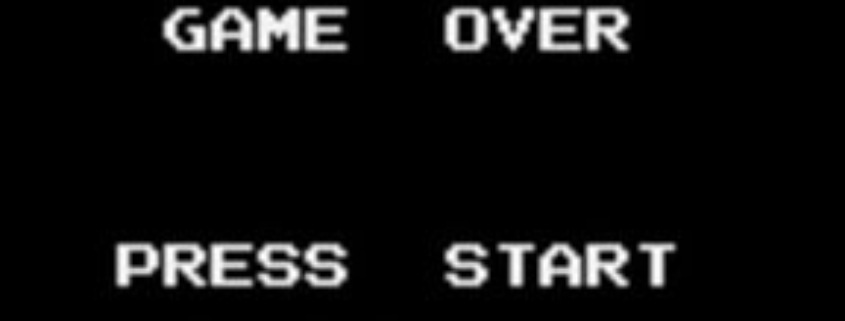Press Start to Continue
As a video game producer, my job is to address problems that arise in development. Whether it is to make a boring level fun, or to create a plan to moderate the penises that players inevitably create (using in-game text, player animations, or level editing tools), I work with my team to find solutions. And I’m good at it. I’m not often unsure what to do, but I was a few years ago during a marketing call, when a seemingly harmless comment was made.
My team and I discussed the direction of the key art for our horror game. Key art is the main image used for marketing and advertising. It is carefully crafted to communicate what the game is to consumers; it pitches a story, a feeling, a reason to buy. One of my teammates said that the young women’s expressions should be scared and fearful, while the young men should look stoic and brave. A chorus of agreement followed. No protests, no complaints, and no recognition of the sexist assumptions that were so painfully obvious to me. I had no idea how to respond.

Photo Credit: Vicki Miller
I’ve always been drawn to gaming thanks to my love of storytelling—the same love which led me to pursue writing in the Antioch MFA program. I vividly remember playing my first game, Alpiner, for the TI-99/4A home computer, and the awe I felt climbing Denali and Everest, dodging mountain lions and falling rocks. Like reading books, games allow me to escape into the wilderness of my imagination and experience boundless adventures and heartaches. I first shed tears for a game character when Aerith died in Final Fantasy VII, and I felt bittersweet joy upon reaching the summit in Journey. For me, seeking a career in game development was a natural fit.
I love my job and take pride in my work, but sometimes I’m reminded that the industry is still largely for men, by men. There were eight or nine people on that conference call, and I was the only woman. It’s such an everyday occurrence that I had forgotten how uncomfortable it can feel. But on hearing that suggestion for key art I realized my habituation. It reminded me of the first day I wore a bra. The snug elastic bands constricted my chest and shoulders, and all day I felt awkward. Every time I moved, my discomfort nagged. But, over time, the internal protests quieted, and wearing the bra became my new normal. Similarly, the lack of female perspectives had started to feel natural to me.
I’d like to say that I spoke up and challenged the stereotypes. That I immediately proposed an alternative direction. I had all the defense I needed in the content of the game. It’s my job to know every line of dialogue, every jump-scare, and every scene, and I knew that the characters did not conform to ascribed gender norms. Some of the young men spend the game panicked and afraid, while one of the young women fearlessly confronts danger to save the others. But I didn’t say anything. I froze. I couldn’t believe what I was hearing, or that everyone thought it was a great idea. I worried that if I spoke up, I’d be labeled as too sensitive—a designation given to a female coworker in my previous job—or that calling my coworker out would harm our professional relationship.
The moment passed before I could process everything and react. The conversation pivoted to other topics and I remained silent. I’ve always thought of myself as the type of person who stands up to discrimination and protests stereotypes, but the truth is, I’ve watched opportunities to challenge the status quo pass by dozens of times, too startled, too intimidated, or too quiet to make my voice heard. And it has always felt like a failure.
* * *
The decision to speak out is never easy; it comes with its own risks. A few years ago, the video game industry experienced a firestorm of controversy surrounding sexism in games. It was dubbed Gamergate, and in hindsight, it was a disturbing prologue to the current political climate. What began as a bizarre revenge post by the ex-boyfriend of a female video game developer turned into a campaign of online harassment.
Gamergaters targeted women (and men) in the industry who spoke out about problematic portrayals of female characters or advocated for equal representation. They sent threatening and violent messages on social media and released personal details including addresses and phone numbers—an intimidation tactic known as doxxing. Some industry events even received bomb threats because they planned to host feminist speakers. Gamergaters felt personally attacked by cultural criticism of the games they enjoyed playing, and reacted viciously in their own defense. Several developers and commentators, fearing for their own safety, were driven from their homes and forced to upend their lives.

Photo Credit: Creative Commons
I could write an entire essay about Gamergate, but that’s already been done. One result of the controversy is that many women in the industry felt scared to speak up, including myself. While tech companies have begun to take steps to combat online harassment, particularly with recent high profile targets like Leslie Jones, it remains a problem for video game developers and the broader online community. Recent research suggest that nearly a quarter of Americans have decided not to post something online for fear of harassment, with young women being most likely to report self-censoring.
At the height of Gamergate, a journalist interviewing me for one of my games asked me to weigh in on the debate. I wanted to take advantage of the interview to describe the subtle sexism I’ve experienced in the workplace, and the more blatant offenses common in game content. But I didn’t. Instead, I dodged his question, not only because it would have jeopardized my job—I was acting as an official spokesperson for my company—but also because I was afraid of the online harassment that might have followed.
My silence and avoidance of confrontation isn’t relegated to experiences in the game industry. When a random guy groped me in a bar several years ago, I didn’t defend myself. I felt a pinch on my butt, and swung around to figure out what had happened. I saw a man walking toward the bar’s exit. He turned and our eyes met. He grinned, laughed, and then disappeared outside with his friends before I could react. He was gone and I had no recourse.
After the incident, I beat myself up for days. I played mind-movies of how I should have reacted: confronting him, shouting him down, holding him accountable for his behavior. I became a victim not only of his assault, but also of guilt over my own inaction. It has compounded with interest each time I’ve remained silent while a random guy tells my partner he is “lucky to have me,” speaking as if I weren’t standing right there. Or when I’ve been catcalled while walking down the street or waiting at a bus stop. After incidents like these, I’ve felt inadequate, as if I were not the person I thought I was.
Sometimes it feels like it’s impossible to win. Speak out against discrimination, and you might be called overly sensitive, or told that you can’t take a joke. You might be intimidated, bullied or harassed. Stay silent and nothing changes. But I’m a producer, and solving problems is what I do. No matter how discouraged or frustrated I am, I keep trying. The answer isn’t always obvious or immediate, but there’s always something that can be done.
* * *
A few days after the marketing call, I decided to approach my coworker for a one-on-one discussion. I explained how the proposed direction of the key art was problematic and perpetuated stereotypes, finally voicing the arguments that had been endlessly swirling in my head. Our conversation was frank and honest; he listened to my reasoning and understood the issue. In the end, the direction was scrapped. I can’t take full credit for the change—using the characters’ faces in the artwork would have involved an arduous approval process—but I’m confident my coworker is now more cognizant of stereotypical images in his work. It’s empowering to know that I have an ally in the room should I need to speak up.

Photo Credit: Vicki Miller
We all have setbacks and failures, and we feel guilt or frustration when we let opportunities for change slip by. But having the perfect pithy comeback or reproach for sexist, racist, discriminatory remarks isn’t the only solution. In production, you work hard, and you do what you can, even if you aren’t always successful. You can’t get stuck dwelling on what you could have, or should have done. You keep going, and you move onto the next problem. Because there’s always something else that needs your attention.
There are many ways to fight for change, whether it’s leading activist marches, politically organizing, writing thoughtful essays, or having candid discussions with friends and coworkers. Instead of obsessing over what I could have done differently, I ask myself, what will I do next?
In the past few months, I’ve reviewed game scripts and successfully advocated for more diverse characters. I’ve encouraged young women to explore jobs in the industry. And when I’m at a fan expo and someone asks to speak to the game producer, I tell them: That’s me.


 Vicki Miller is an MFA candidate at Antioch University Los Angeles. She spends her days producing video games for a major publisher and often finds herself juggling flame-engulfed-chainsaws and excel sheets. When she’s not slurping the best ramen in LA or proclaiming her hatred of olives, she finds time to work on her first novel. Find her on Twitter @tigrvix.
Vicki Miller is an MFA candidate at Antioch University Los Angeles. She spends her days producing video games for a major publisher and often finds herself juggling flame-engulfed-chainsaws and excel sheets. When she’s not slurping the best ramen in LA or proclaiming her hatred of olives, she finds time to work on her first novel. Find her on Twitter @tigrvix.


